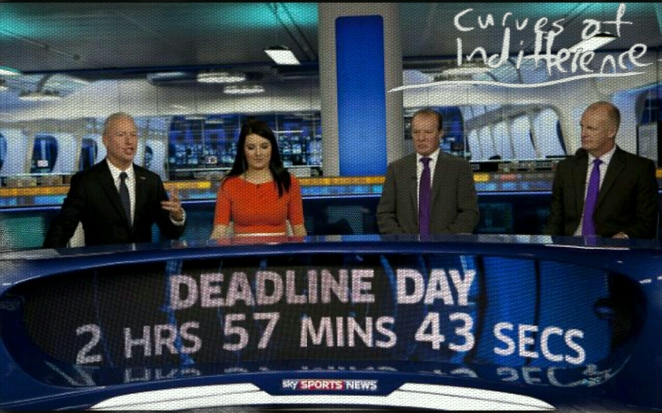On the eve of the Academy Awards, here’s my annual analysis of the years Best Picture nominees.
Amour

It got a lot of promotion here in Austria, since the director Michael Haneke is from here. I remember seeing the posters around during the summer, and immediately I knew that I would never see this film. I don’t even know what it’s about, just that two old people stare at each other and touch each other’s faces a lot. It doesn’t have much of a chance of winning Best Picture, but could be a dark horse for a Best Director win for Haneke.
Argo ***

It’s got a great story and some good action, but Argo is actually Ben Affleck’s worst movie as a director. That is a strange sentence, I know, but his previous two movies have been very good. This one turns a historical incident into a spy thriller straight from the 90’s. The Oscars however are usually less about quality and more about buzz. Argo has a lot of buzz, and it is a story about America being smarter than Islamic Fundamentalists, so it is the slight favourite to win Best Picture.
Beasts of the Southern Wild

I haven’t seen it, but will probably check it out when it arrives on DVD. It won’t win Best Picture.
Django Unchained *****

While reading about Django Unchained, I realised that it is very rare in Hollywood to have a movie featuring slavery that is not specifically about the struggle to end slavery. Django wins his freedom, but the movie is about his own personal journey. No mention at all is given to ending slavery, for it is just a fact of life. I think this is why the film has been criticised so much in the USA, as people are not used to seeing onscreen slaves accepting their position in the world as unchangeable.
Django is a great movie, but doesn’t really stand a chance of winning Best Picture. Tarantino should win Best Screenplay, while Christoph Waltz may pick up a Best Supporting Actor Oscar.
Les Misérables

I will never ever see this movie. I like the plot and the actors, and if there was no singing in it I would be all over it. But there is singing in it. If it wins Best Picture I will never write one of these Oscar previews again.
Life of Pi ****

A good, solid film that few could find a fault with. Ang Lee’s use of 3D here is probably the best use of the technology, and gives hope that 3D might not just be a way for cinemas to charge more for movie tickets. Although technically excellent and a worthy adaptation that seemed to please everyone, there is no buzz whatsoever surrounding Life of Pi and therefore I can’t see it winning anything big.
Lincoln

Americans love stories about how great America is, and the Abraham Lincoln/Civil War story has to be at the top of this love-in. I often wonder if the USA is the only country in the world that actually glamorises its civil war. Whereas most countries are ashamed of their past internal skirmishes, the US sees its own as a pivotal founding struggle in history, where right triumphs over wrong, and freedom reigns throughout the land. A Lincoln biopic was always going to court the Academy Awards, and it is the only movie that can beat Argo to Best Picture. I started watching it but fell asleep after twenty minutes, so I can’t actually comment on how good or bad it is. Unless falling asleep after twenty minutes counts as a review.
Silver Linings Playbook, ***

A romantic comedy about mental health problems. It’s a very strange movie and is difficult to get into due to the intensity of Bradley Coopers protagonist, whose insane scheme to get his ex-wife back is quickly established as the main plot. The stakes are raised later on, and it basically turns into every film you have ever seen. The best thing about it is Jennifer Lawrence, who should win Best Actress. This film is here because the Academy needed nine films to be nominated for Best Picture.
Zero Dark Thirty ****

Everything bad that you have heard about Zero Dark Thirty happens in the first few scenes, so those going in expecting to see waterboarding and torture will not be disappointed. It calms down after that, and the middle portion contains a lot of backroom meetings and psychological breakdowns, before the final act plays out the mission to assassinate Osama Bin-Laden in real time. While many criticised the movie for condoning the use of torture, I felt the movie was very unbiased and left the viewer to decide whether the actions shown are justified or not. Due to this moral ambiguity and the controversy surrounding it, there isn’t much chance of it winning Best Picture. It’s a straight fight between Jessica Chastain and Jennifer Lawrence for Best Actress.



